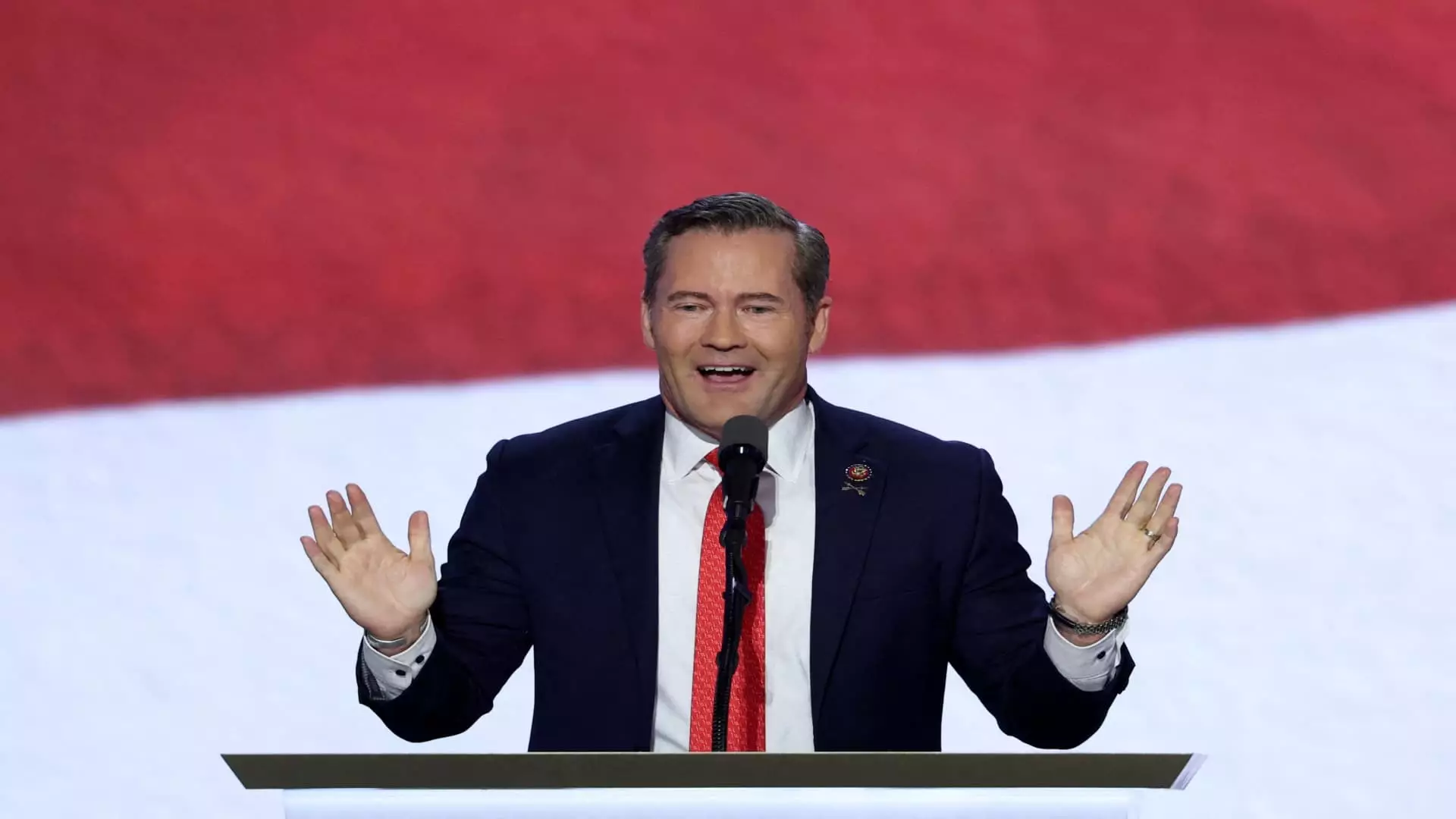In a notable move from President-Elect Donald Trump, Rep. Mike Waltz of Florida has been designated as the new national security adviser, a decision that reflects both strategy and necessity within the broader context of U.S. foreign policy. This appointment brings to the forefront a seasoned veteran with extensive military experience, notably as a Green Beret, along with his vigorous participation in legislative discussions regarding national defense and foreign affairs.
Waltz’s military background is a critical asset for the role he is about to undertake. His service in Afghanistan and experience in various global regions underscore his pragmatic understanding of military dynamics, making him a potentially influential figure in shaping U.S. responses to international security threats. In this period of heightened global tensions, especially concerning powers like China and Russia, his expertise will be indispensable.
Domestic Policy Implications
Domestically, Waltz’s appointment signals a particular approach to U.S. defense spending and military engagement. His membership on essential committees—Armed Services, Foreign Affairs, and Intelligence—positions him at the nexus of legislative power regarding military oversight. Notably, his hawkish stance on China exemplifies a broader Republican sentiment that views the Asian superpower as a significant threat. As a member of the House’s China Task Force, he has been vocal about the need to bolster U.S. preparedness in the face of potential conflicts, a view that echoes the concerns of many in the military establishment and positions the Trump administration as aggressive in its foreign policy approach.
Concerns have also surfaced regarding U.S. aid to Ukraine amid its ongoing conflict with Russia. Waltz has been outspoken about utilizing the U.S.’s leverage in negotiations with Russian President Vladimir Putin. He advocates for a diplomatic resolution, signaling a nuanced understanding of how military aid and diplomatic strategies must be balanced to secure long-term stability.
The Role and Expectations of the National Security Adviser
The national security adviser plays a pivotal role as the chief consultant to the president on matters of defense and international relations. The absence of Senate confirmation required for this position allows Trump to swiftly implement his agenda, focusing on building an administration reflective of his hard-line views. Waltz’s background and views are indicative of an administration that may prioritize military readiness and assertiveness in foreign engagements, which could lead to a more interventionist U.S. posture on the global stage.
Moreover, Waltz’s selection, alongside fellow House Republican Elise Stefanik as U.S. ambassador to the United Nations, suggests a concerted effort by Trump to consolidate a cohesive narrative regarding U.S. foreign policy. Together, they embody the administration’s potential strategy of aggressive diplomacy backed by military strength, particularly in arenas like Eastern Europe and the Indo-Pacific.
Rep. Mike Waltz’s appointment as national security adviser underscores a strategic choice by President-Elect Trump that intertwines military experience with a hawkish foreign policy perspective. As the U.S. navigates complex global challenges, including relations with China and responses to Russian aggression, Waltz’s insights will likely shape the national security landscape for the foreseeable future. This appointment reflects a decisive turn towards a militarized approach in American foreign policy, with expectations set high for action and strategic alignment as the new administration takes office.


Leave a Reply